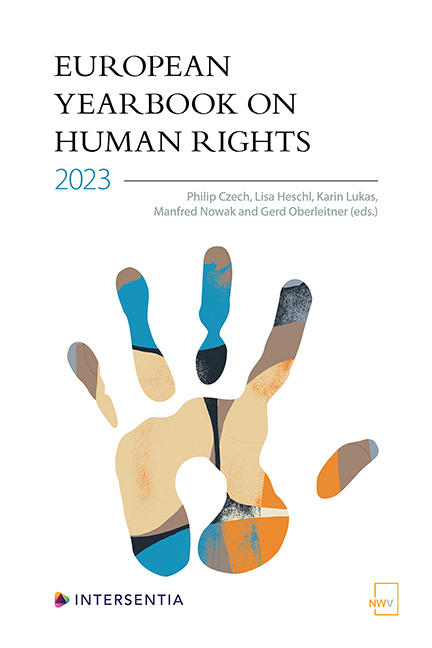Kate Ogg: Protection from Refuge: From Refugee Rights to Migration Management
Published online by Cambridge University Press: 04 April 2024
Summary
At first glance, it seems paradoxical to seek protection against a place of refuge. Reality shows, however, that many places to which people flee can oft en only nominally be considered a place of refuge. It is, therefore, important to ask what requirements can be imposed on places of refuge, and how case law defines this term. Kate Ogg not only provides a global and comparative study, but also analyses from a feminist perspective throughout the work, offering a unique and necessary insight from a gender perspective as well.
In the first chapter, the author shows all too vividly why protection of refuge claims exist in the first place: desolate shelters, lack of access to health care and education, and, sometimes, dangerous circumstances. It also gives a detailed insight into the way decision-makers give meaning to the term ‘refuge’. The legal bases for the claims vary, but it is recognised that decision-makers all face a similar set of issues, the resolution of which has international significance in terms of the adjudication of such cases. It also shows, here, that the study is extremely broad, both on an objective and a subjective level.
The second chapter indicates the multifaceted nature of refuge. Also, while the concept of refuge is a strong and resilient one, it is shown that the discrepancies between the ideal and the reality of refuge are sometimes enormous. Both the ideal and the reality of refuge enter the judicial domain when claims of protection of refuge are made. It is previewed how the author will use the notions of refuge outlined here to explore how decision-makers conceptualise refuge, and how they navigate these discrepancies.
Chapter 3 examines Kenyan judges’ approach to protection from refuge claims, specifically focusing on forced encampment litigation. The analysis of the landmark case Kituo Cha Sheria reveals that Kenyan judges have adopted a purposive approach, prioritising the diverse needs of refugees, taking into account their age, gender, family responsibilities and disabilities. However, subsequent court decisions indicate a shift whereby additional factors are required for human rights law protection, undermining the potency of human rights arguments in facilitating refugees’ search for sanctuary.
- Type
- Chapter
- Information
- European Yearbook on Human Rights 2023 , pp. 681 - 682Publisher: IntersentiaPrint publication year: 2023

